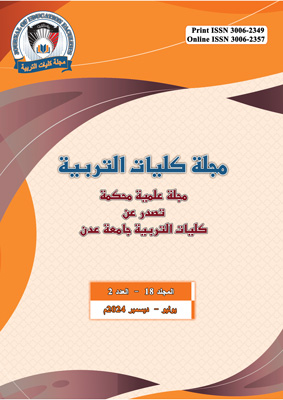Investigating the Correlation Between EFL Teachers' Self -Efficacy and Teaching Performance: A Context Study of New Horizon Center's Teachers
DOI:
https://doi.org/10.47372/jef.(2024)18.2.107Keywords:
EFL Context, EFL Teacher, Self-Efficacy, Teacher Performance, Classroom Management, Student's Engagement, Instructional PracticesAbstract
EFL teachers at English language centers in Yemen come from a variety of academic backgrounds, and the factors that influence their self-efficacy can vary based on their education, which in turn impacts their classroom performance. This study aimed to investigate the relationship between the self-efficacy of EFL teachers and their teaching performance at New Horizon Center, a prominent language center. The research included a sample of 30 EFL teachers from New Horizon Center. The teachers filled out a questionnaire, and their classes were observed to evaluate their performance. Additionally, short interviews were conducted with the teachers. The findings showed a positive relationship between EFL teachers' self-efficacy and their teaching performance, especially in areas such as classroom management, student engagement, and instructional methods.
Furthermore, the results indicated that teachers felt more confident in their instructional practices than in their classroom management and student engagement skills. The study also revealed that more experienced teachers had higher self-efficacy scores, while those with less experience scored lower, which impacted their classroom performance. As a result, it is recommended that training programs be developed for less experienced EFL teachers to offer guidance, support, and practical strategies, thereby improving their teaching performance and self-efficacy.
Downloads
Published
How to Cite
Issue
Section
License
Copyright (c) 2025 Journal of the Faculties of Education - University of Aden

This work is licensed under a Creative Commons Attribution-NonCommercial 4.0 International License.

